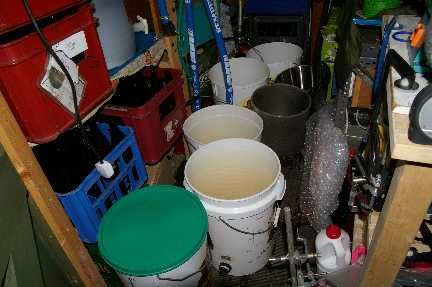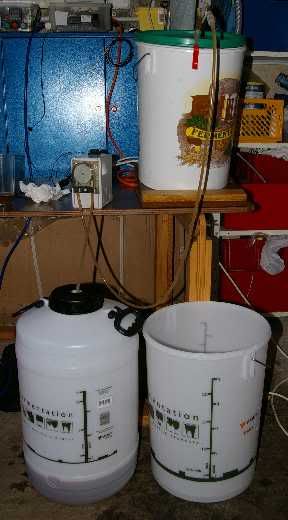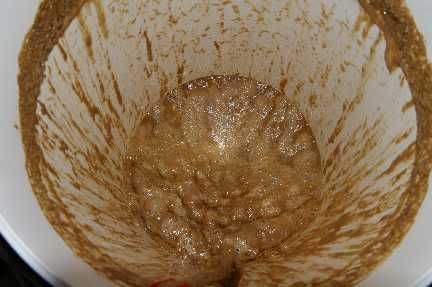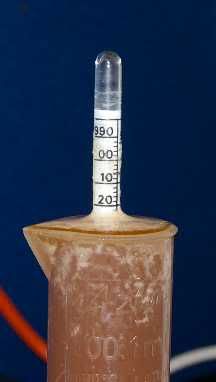2kg Wheat malt
1kg dark wheat malt
500g crystal wheat malt
2 kg Maris Otter pale malt
50g roasted wheat malt
Just doughed-in at 50ÌŠC (about 53ÌŠC before adding grains) - quite a lot of floury stuff visible:
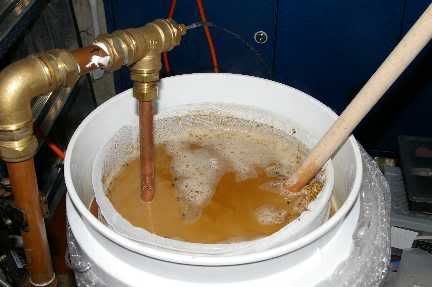
recirculating the mash liquor:
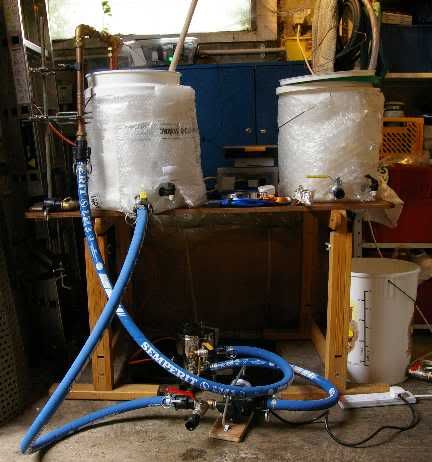
Some minor technical innovations - a handle bodged on the piece of plywood the pump is screwed to, so I can pick it up for bleeding it, and for emptying the hoses:
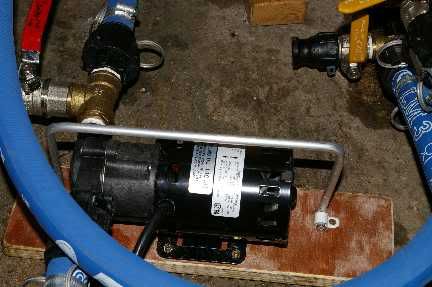
and the heat exchanger is clamped to an old chipboard shelf so it doesn't wander about when I'm playing with the hoses:
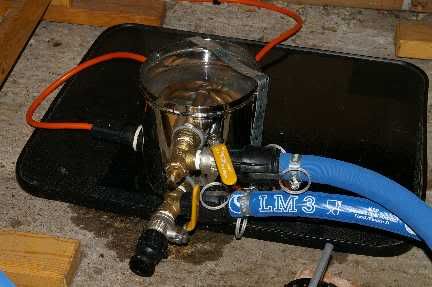
and I'm trying the new ramp controller (PID with programmable steps) for the first time, though only as a PID as I haven't got the hang of programming it yet - I'll probably try it out with the kettle in the kitchen before I dare use it for a mash!
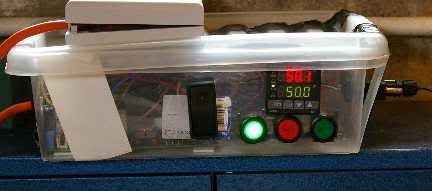
and finally a high-tech scoop for grains and hops:
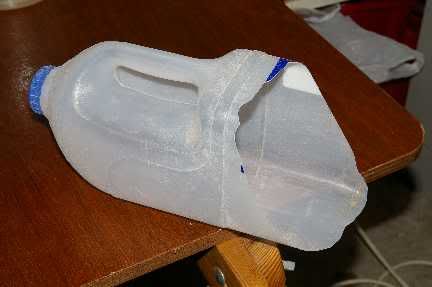
Mashed for half an hour at 50ÌŠC, then raised the temp to 66ÌŠC for an hour. Lots of stirring - about every ten minutes or so. With the eye of faith you could imagine that the mash has changed in appearance during the 66 degree stage - clearer and darker:
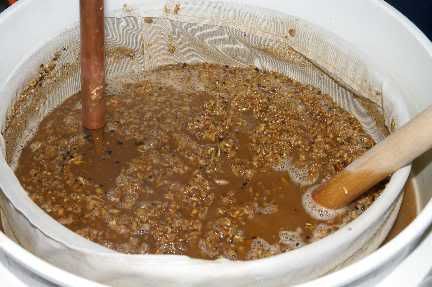
Then I raised it to 78ÌŠC ready for sparging - again it's a bit darker and clearer. The mash consistency changes as well, very like what happens to your muesli as you read the paper. When it's at 50ÌŠC it's quite stiff, then as more sugars come out into solution it gets more "open" and easier to stir:
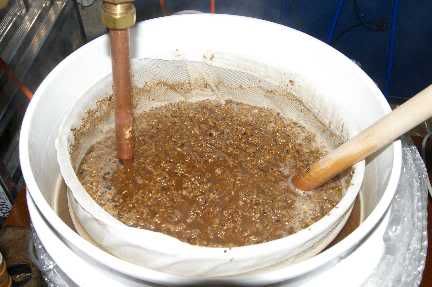
Sparging:
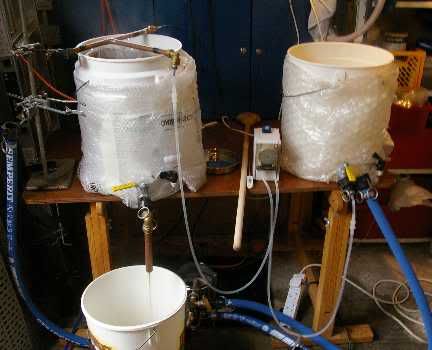
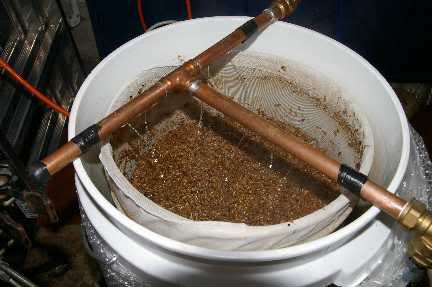
The first runnings were about 18ÌŠ Brix (= 1074 according to here):
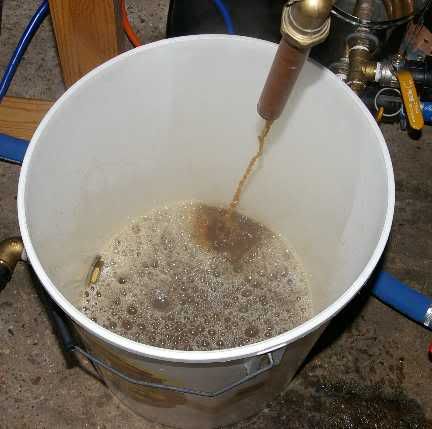
Sparged down to 3.4ÌŠ Brix - had to stop there as I was running out of sparging liquor and space in the receiving vessel.
Spent grains:
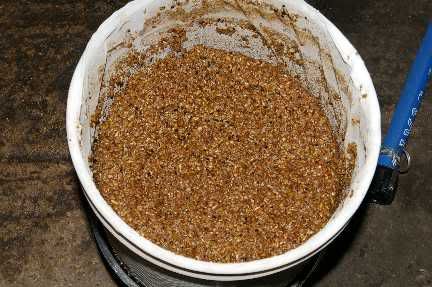
Started boiling the wort split between the two boilers, with 13g of (probably 2006) home-grown Hallertau hops and a lidful of Irish Moss in a bag in each, because I was worried about boiling-over in a single boiler:
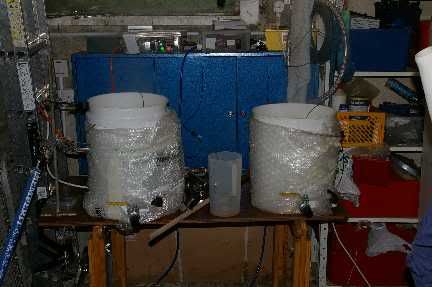
After half an hour, it had all gone a bit quiet
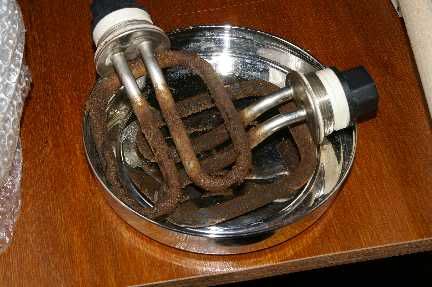
Both elements covered in brown fur, and one of them had a serious black layer beneath the fur, so they had cut out. OK again in an hour or so, but it would take longer than that to clean them up. This seems to be a feature of making beer with a higher grain bill - if I have 3 1/2 kg in my approx 18l mash, for a 1045 or so brew, it's been OK, but with 5 1/2 kg for a 1066 brew, there's too much dissolved sugar and it burns onto the elements. I wondered last time whether it was anything to do with not using Irish moss at the beginning, and adding a Protofloc tablet at the end, but this time it still happened with Irish moss at the beginning of the boil.
Dumped it out into the receiving vessel, put my one spare element into one boiler, and pumped most of the wort back up.
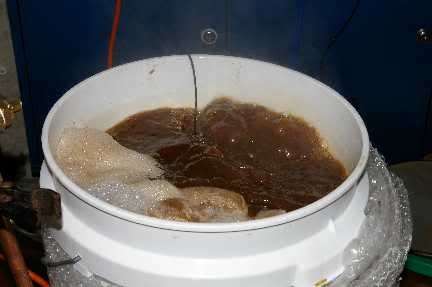
I added the rest of the wort at intervals, when I thought the level had gone down enough. Boiled for a further half hour (assuming it had had half an hour already), then added the quad immersion chiller and boiled for another fifteen minutes to sanitise it. No late hops - this is based on an original lunch with a recipe in Protz & Wheeler's Brew Classic European Beers At Home, and there aren't any.
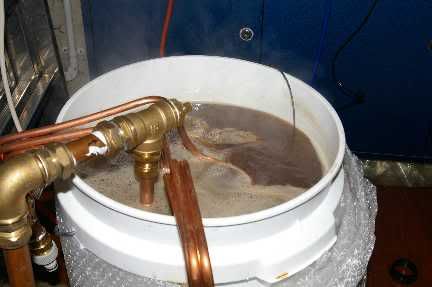
At this point I started recirculating the wort (just through the pump, not via the heat exchanger) to sanitise the pump and the hoses, as this recirculation helps the crash chill. I got the U-tube outlet just inside the quad IC coils, which is good for moving hot wort onto cool copper.
Element off, and cooling water on, about 17:33. Watch it go down! 91ÌŠC at 17:35:
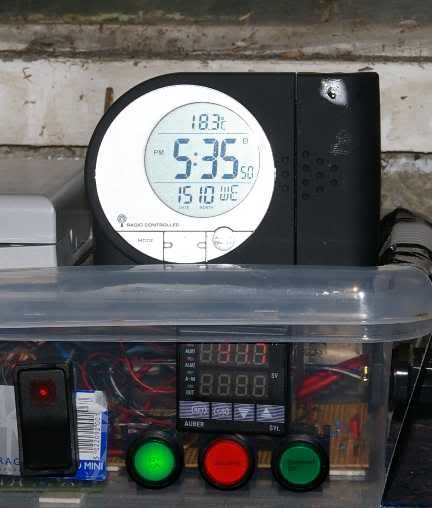
and 25.8ÌŠC at 17:52, so about 20 minutes to pitching temp. I put the cold water in at the top of the IC this time, but I'm not sure I can tell the difference.
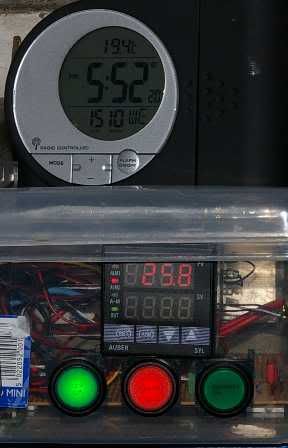
Running-off:
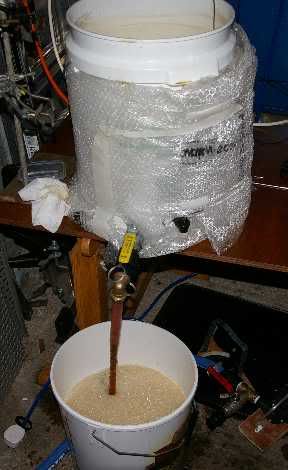
OG 1066 @ 23.2 ÌŠC = 1067.5 @ 15.5 ÌŠC. Quite a good colour, and lots of cold break material in suspension:
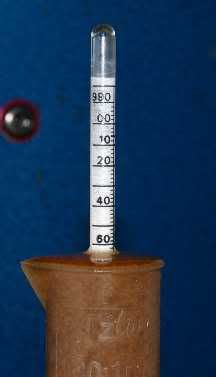
I made a starter with a packet of Danstar Munich German Wheat Beer yeast and 2 tsp of gran in 250ml of boiled, cooled water, around 2 pm. By the time I was ready to pitch at nearly 6 pm, it had pushed its foil hat off its milk bottle and was heading for the table. I forgot to take a picture of it
Stopped clearing up and washing-up about half past eight. The washing-up is air-drying in my shed, along with the beer in a bin:
